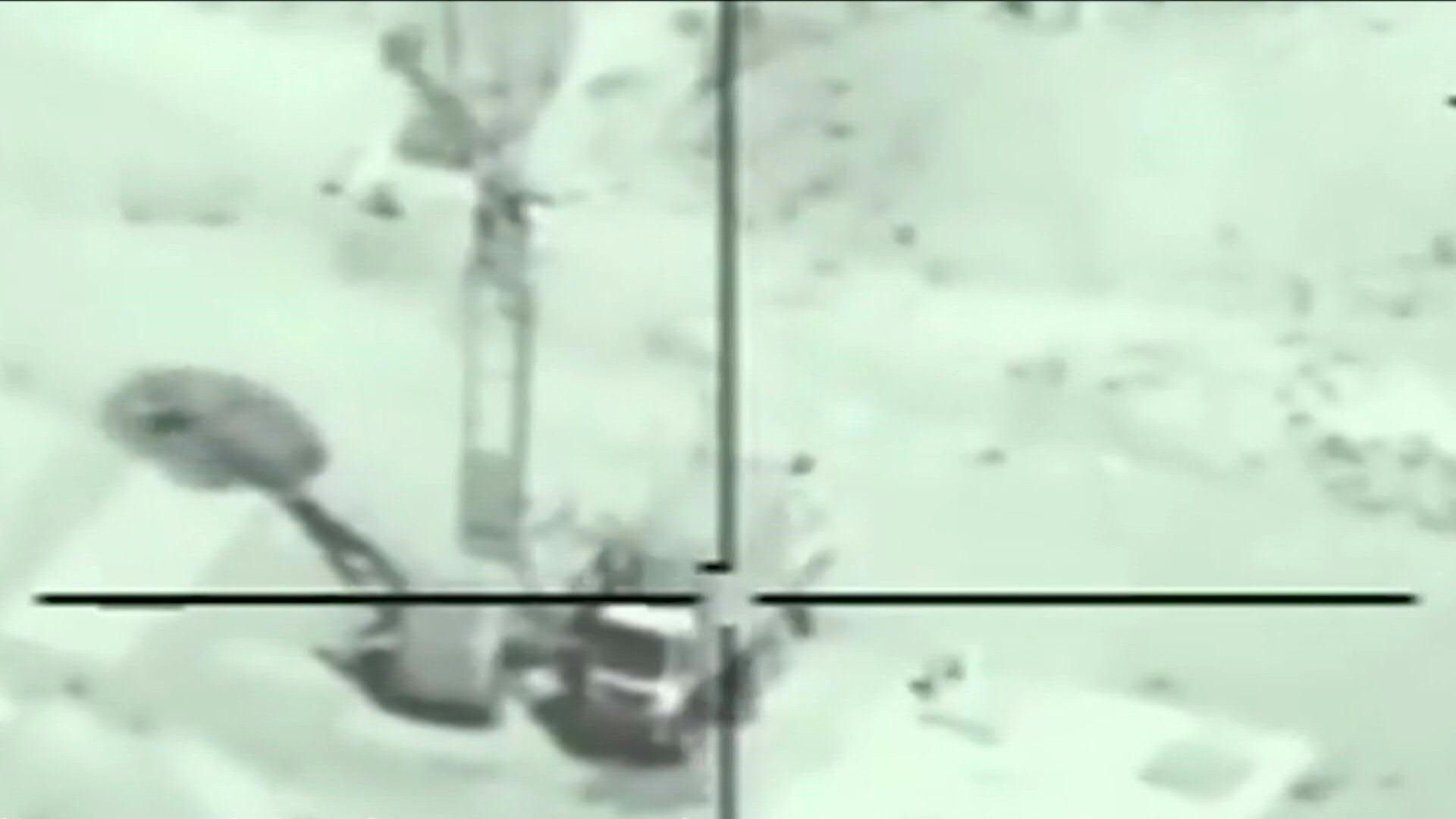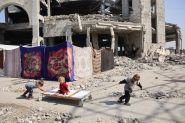- Home
- Middle East
- Iran-Israel War: Latest Developments

Images released by the Israeli military on June 20 show what it claims to be strikes targeting Iranian missile systems and radar installations in the Isfahan region of central Iran. ©Israeli Army / AFP
Israel's war with Iran has entered its second week with Israel's foreign minister saying its strikes have delayed Tehran's potential to develop a nuclear weapon by at least two or three years.
Here are the latest developments:
Iran Arrests 22 Over Israeli Spy Links
Police in Iran's Qom province said 22 people "linked to Israeli spy services" had been arrested since June 13.
"22 people were identified and arrested on charges of being linked to the Zionist regime's spy services, disturbing public opinion and supporting the criminal regime," Fars news agency reported, citing the head of police intelligence in Iran's Qom province.
A European national was also arrested for spying, Tasnim reported on Friday, without giving their nationality or the date of the arrest.
Norway-based NGO Iran Human Rights said at least 223 people have been arrested nationwide on charges related to collaboration with Israel, cautioning that the actual figure was likely higher.
Iran FM Arrives in Istanbul
Iran's foreign minister arrived in Istanbul, Tasnim news agency reported, for a meeting with Arab League diplomats to discuss Tehran's escalating conflict with Israel.
Around 40 diplomats are due to join the weekend gathering of the Organisation of Islamic Cooperation, as Israel and Iran continue to exchange missile strikes.
"At this meeting, at the suggestion of Iran, the issue of the Zionist regime's attack on our country will be specifically addressed," said Iranian Foreign Minister Abbas Araghchi, according to the news agency.
Delayed by 'Two or Three Years'
Israel's foreign minister said its strikes on Iran have delayed Tehran's potential to develop a nuclear weapon by at least two or three years.
"According to the assessment we hear, we already delayed for at least two or three years the possibility for them to have a nuclear bomb," Foreign Minister Gideon Saar said in an interview.
Western powers have repeatedly expressed concerns about the rapid expansion of Iran's nuclear programme, questioning in particular the country's accelerated uranium enrichment.
The International Atomic Energy Agency said that Iran is the only country without nuclear weapons to enrich uranium to 60 percent.
However, it added that there was no evidence it had all the components to make a functioning nuclear warhead.
'Prolonged Campaign'
Israel's armed forces chief Eyal Zamir warned that his country should be "ready for a prolonged campaign" against Iran.
"We have embarked on the most complex campaign in our history to remove a threat of such magnitude, against such an enemy. We must be ready for a prolonged campaign," Zamir said in a video statement to Israelis.
Israel launched attacks against Iran on June 13, which have combined targeted assassinations of key military personnel and nuclear scientists with strikes on Iran's nuclear and missile facilities.
Zamir said Israelis needed to brace for more difficulties, as the country comes under frequent attack from Iranian ballistic missiles.
Geneva Meeting
As US President Donald Trump mulls the prospect of entering the war, top diplomats from Britain, France and Germany met with their Iranian counterpart Abbas Araghchi in Geneva on Friday.
Referring to nuclear negotiations with Washington that had been derailed by the war, Araghchi said Iran is ready to consider diplomacy "once the aggression is stopped".
Tehran did "support the continuation of discussion with" the European countries and was willing "to meet again in the near future", Araghchi told reporters.
French Foreign Minister Jean-Noel Barrot urged Iran to resume negotiations with all sides "without awaiting the cessation of strikes".
Trump Says Iran Wants Talks
Trump said the Europeans were "not going to be able to help" end the war.
"Iran doesn't want to speak to Europe. They want to speak to us," he said.
He also said Iran had a "maximum" of two weeks to avoid possible US air strikes, indicating he could make a decision before the fortnight deadline he set a day earlier.
AFP
Read more



Comments